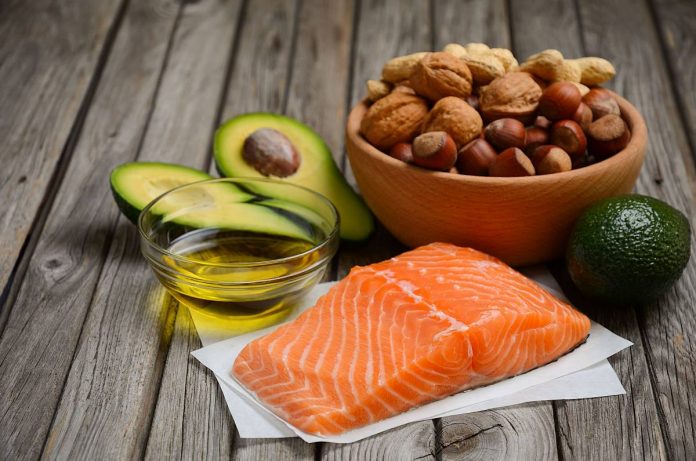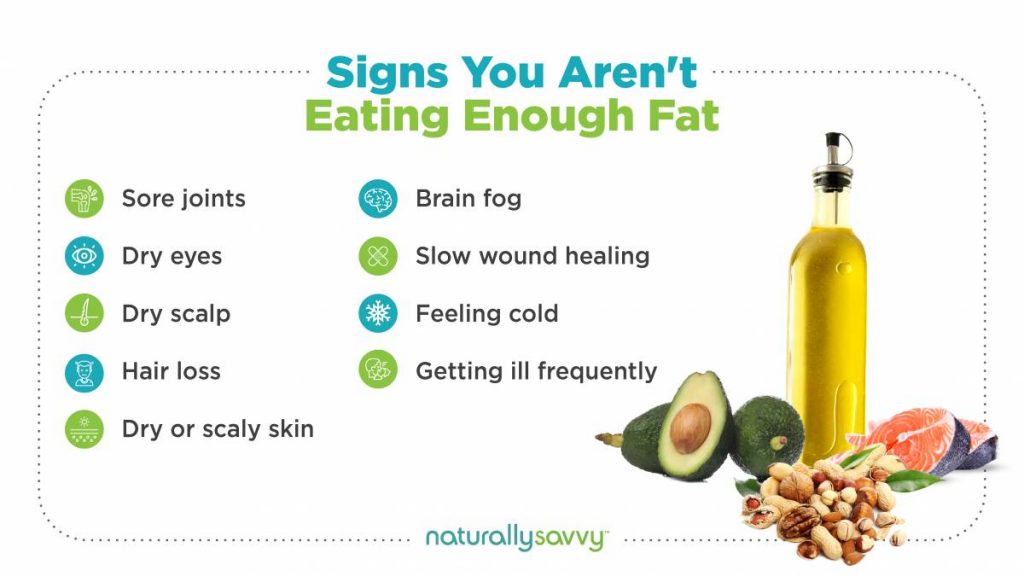
Despite all the research and media coverage about fat, let’s face it: the word “fat” has had a bad reputation for many years, so it’s challenging to convince people there’s a good side to this macronutrient. Yes, along with protein and carbohydrates, fat is one of the three essential macronutrients your body needs.
Yet many people still cringe and hide from fat in their diet, so some of the questions we want to ask you are:
- Why should you eat fat at all?
- Are you eating enough fat?
- Or, more precisely, are you eating the right fat?
Read about good fats, bad fats
Why should you eat fat?
All of us are fat heads, and that’s because up to 70 percent of the brain consists of fat. For a healthy functioning brain, you need fat. Not just any fat, however, and that topic is discussed later.
Besides helping to keep your brain in optimal operating condition, fats also are:
- An energy source for the body. One gram of fat provides 9 calories of energy while one gram of carbs provides only 4.
- Needed to help the body absorb fat-soluble vitamins such as A, D, E, and K.
- Necessary for hormone production, especially testosterone and estrogen.
- A major component of the outer membrane of all your cells, which means they protect their integrity.
- A form of insulation for your body and internal organs.
- A source of support for eye health, especially the omega-3 fatty acids eicosapentaenoic acid and docosahexaenoic acid.
- Needed for wound healing and blood clotting.
Are you eating enough fat?
The general guideline for fat consumption is 20 to 35 percent of total calories adults take in per day should be from fat. According to the Cleveland Clinic, your intake of fats should be:
- 15 to 20 percent monounsaturated, found in plant sources such as oils (peanut or olive), nuts and nut butter, olives, and avocados.
- 5 to 10 percent polyunsaturated, which you can found in nuts. A type of polyunsaturated fat is omega-3, which helps reduce inflammation and is found in cold-water fish, flaxseeds, chia seeds, and walnuts.
- Less than 10 percent saturated, found in beef, pork, veal, lamb, high-fat dairy products, butter lard, tropical oils, and baked goods. Saturated fat promotes the development of low-density lipoprotein (LDL) cholesterol, which is associated with cardiovascular problems and also induces inflammation.
- 0 percent trans fat, found in solid margarine, shortening, powdered and liquid coffee creamers, and many packaged foods such as crackers, baked goods, and cereals. These fats are not natural and are created in the laboratory. Always check the ingredient labels for hydrogenated or partially hydrogenated oils.
Signs and symptoms you can experience if you are not getting enough fat in your diet include sore joints, dry eyes, dry scalp, dry skin, hair loss, brain fog, feeling cold, frequent illness, and slow wound healing.

Are you eating the right fat?
Many doctors, articles, and news reports mention that we eat too much fast food and other foods laden with fats that can contribute to heart disease, stroke, obesity, Alzheimer’s disease, and other serious health concerns. At the same time, we need to emphasize the messages about fat in the diet, because healthy fats (monounsaturated and polyunsaturated) are important for overall health but unhealthy ones, such as trans fats and saturated fats, are not. Take a close look at your diet and decide if you are eating the right fats.
Read about healthy fats that don’t make you fat
Which is worse: fat or sugar?
This is an often-asked question, and the answer isn’t black and white. If we are talking about natural sugar found in fruits and raw honey, these sugars are considered good when you eat them as part of a balanced diet.
However, added sugars (generally sucrose) are not considered to be healthy, as they can contribute to chronic inflammation, diabetes, obesity, and other health problems. Many foods contain added sugars, ranging from salad dressings to baked goods, crackers, candies, ice cream, most frozen dinners and other foods, packaged soups, and most processed foods in general. Always check ingredient labels before making your purchase.
Here’s the situation: Your best health bet is to focus on all-natural foods. The majority of processed or manufactured foods and restaurant foods contain added fat or sugars. If you buy low-sugar items, they may have a lot of fat, while low-fat foods may contain added sugar. Therefore, it’s best to always check ingredient labels before opening your wallet.
Bottom line
We all need healthy fats in our diet, and it’s best to minimize or avoid unhealthy ones. Added sugars are like unhealthy fats: stay clear as much as possible and focus on the natural sources of sweetness.







